People Make Roofing: Randy Korach - PODCAST TRANSCRIPT
May 30, 2025 at 3:00 p.m.Editor's note: The following is the transcript of a live interview with Randy Korach, CEO of Roofing Corp of America. You can read the interview below, listen to the podcast or watch the recording.
Intro: Welcome to People Make Roofing, a call to action led by Roofing Talent America and RoofersCoffeeShop.com. We're tackling the industry's biggest challenges, from outdated misconceptions to the widening skills gap. Our mission? To show the next generation the true potential of roofing, including the diverse opportunities, endless growth possibilities and a chance to make a lasting impact. Join us as we share unfiltered stories from the industry professionals across North America, inspiring and guiding the future of roofing.
Luke McCormack: Hi everybody. I am Luke McCormack, CEO of Roofing Talent America and co-host of People Make Roofing.
Heidi Ellsworth: And hello, I'm Heidi Ellsworth, President of RoofersCoffeeShop and co-host of People Make Roofing. Welcome to the show. Welcome to the podcast. We are so excited to have two amazing guests with us today and we're going to start right off with introductions. We are so happy to have Ashley and Randy joining us. Hello and welcome to the show.
Randy Korach: Great, thank you. This is Randy. It's great to see you. Heidi, great to see you, Luke. I'm honored, candidly, to be asked to participate on this podcast. I'm so inspired by what you guys do for the industry and promoting it and advocating for it. So, thank you for the opportunity. I'm Randy Korach. I'm the CEO of Roofing Corp of America. We've been sort of growing a coast to coast roofing business through the acquisition of leading local commercial roofing contractors for the last four years and change, four and a half years. And we've now got 13 different operating brands and 20 branches operating in 16 different states across the country and are really proud of the team that we have in place. And excited to talk about the reasons that I and I think others choose to work in the industry and specifically at Roofing Corp of America. So, I'm looking forward to this interaction. Ashley?
Ashley Aldridge: Hey, I'm Ashley Aldridge. I'm the HR Director at Roofing Corp of America and I'm a first time, first generation roofer and really happy to be here. So, thanks for inviting us. I've been with the company for about two and a half years and it's been really exciting. It's grown, actually more than half since I've been there and so that tells you how quick our company is growing. So, to say it's been exciting and a roller coaster would be an understatement. But I'm so excited, especially about what you're doing and really get a spotlight on roofing, the career in roofing. I mean, somebody like me, who would've thought that I would be in roofing, right? But it's so exciting and I just think we just need to get more people like me and Randy out there in these small little pockets where we can tell our good stories. So, thanks for inviting us.
Luke McCormack: Thank you for coming, guys. Appreciate that.
Heidi Ellsworth: I've worked with a number of folks from both from your team and you guys have a very inspirational group. I mean, just of the companies, the people who work for you. You can just see the commitment. So, for everyone out there, we're kind of interested in hearing how you got into roofing. Go way back and how did you get into roofing? So Ashley, let's start with you and kind give us your story.
Ashley Aldridge: So, I've been in HR my entire professional career and it was about time for me to make a move. I wanted something different. I wanted, I was thinking back and this might even sound familiar to Randy, I was thinking back, when was I most happy in my career? And it was when I was with a smaller company and we were very entrepreneurial and this just sort of came along and it was the perfect model. It was an exciting model. It was about attracting the most successful contractors and we've continued to do that. And what was also really exciting was just to learn something new. I mean, I never thought about roofing before and I'm still learning every day and I think that's been challenging, but it's really been a ton of fun.
Heidi Ellsworth: Once you get in, you just really don't ever want to get out. You just kind of find your home, right?
Randy Korach: Nothing more true has ever been said, Heidi. I don't know. It's about wanting to get out. I just never see anyone leave, right? It's a fascinating phenomenon in the industry. People stay and we have to get more to start, but once they're here, they tend to really embrace it. And Ashley came to us from a large public facility services business, had a lot of branch-based experiences and so we really valued her background. And her lack of experience, when she joined us at roofing, we viewed as a plus, to be candid. That there was a real opportunity to gain perspective from other branch-based facility service type organizations and bring that to bear in the roofing organization. And she's brought an enormous amount of energy, obviously great HR chops, both as a generalist, as a recruiting professional, as an L&D professional and we've really benefited from that and our people get all the benefit associated with it.
Randy Korach: My background's a little bit longer in roofing. I feel like I was sort of, had it in my earliest memories, sort of connection to the building materials and construction services business and industry, boring Heidi because she's heard the story before. But my father and grandfather had a construction chemicals business that I was sort of born into. They actually sold it before I actually worked there, but sort of heard the stories and lived their experiences around the dinner table and around the weekend conversations, as anybody who's sort of had an entrepreneurial family knows. So, you just never escape sort of the everyday aspects of the business. So, my childhood was sort of always sort of closely connected to the construction trades. At that time, it was sort of in the building material side of the business and fast-forward several years later, I ended up joining Tremco, incorporated in 1997. That was when Tremco was being bought by RPM from Goodrich and there was just a number of integration, activities that RPM was tackling to bring that Tremco organization into its existing portfolio companies.
Randy Korach: So, I joined them as part of the integration team and stayed there for 17 years. Who would've thought it? But as a young man, it proved to be an incredible place to learn and to grow. It was an amazingly dynamic organization, not only in roofing but also in construction sealants and construction services and other building materials like concrete masonry additives and external insulating finishing systems. So, a wide range of product categories in and around construction trades, but it's most known for its position in the roofing industry, both as a manufacturer and a service provider to large institutional and government clients. So, that's where I cut my teeth in the industry. My responsibilities continued to expand and grow and stayed there, as I said, for 17 years. After I left there, I went to Sherwin-Williams for a little while, ran a number of businesses for them, including their roof coatings business and their construction sealants business.
Randy Korach: And ABC Supply was a huge customer of mine and Beacon was a big customer. So, I learned another side of the industry, but still largely on the material side. A couple years after being there, I realized that I really sort of missed that experience that I witnessed as a kid, the sort of entrepreneurial existence that I grew up with in my family's business. And I bought a little contracting business. So, that was my really full jump into the roofing trade world. I thought that, candidly, that I knew enough about the industry and that there was a business that I thought I could impact. Little did I know how different the contracting world is to the material side of the business. So, it was trial by fire to say the least. But navigated it, learned it, loved it, learned I loved it. Mostly just the incredible realness, that's not a word I don't think, but of the people that make a career and a living in the field.
Randy Korach: And I was energized at 5:30 in my shop to engage with my colleagues, my field colleagues and hear about their challenges and find ways to make them feel like their sort of knowledge and insights were valued and their lives made easier by some of the decisions we were making. So, anyway, I just really struck a chord with me. Not to ramble on, although I often tend to do that. Eventually partnered with a private equity firm to build what is now Roofing Corp of America. And this topic of identifying, cultivating, developing, recruiting the right talent to the industry is absolutely critical to our model. I mean, the entire success that we project forward is fully dependent on the quality of the workforce that chooses to come to workforce every day. So, Ashley and my challenge is to create an environment that makes them want to be there and to stay. And so, we take that very seriously at RCA. That's my history, that's my story. You heard a little bit about the preamble in my introduction, about the businesses that exist today.
Luke McCormack: I appreciate that, Randy. Randy, you're a very humble guy and that small contracting business has grown into near billion dollar platform, which is amazing. And you've been able to strategically lead the growth of this. And then Ashley, you're coming in, right the weeds, to solve the biggest problem, the people aspect, acquiring them, developing them, keeping them. I'm so interested to hear from both of you. Perhaps, start with you again Ashley, what do you find most rewarding about the job that you're doing in Roofing Corp of America? And then Randy, it'd be great to hear from you as well.
Ashley Aldridge: It sounds so totally cliche, especially coming from an HR person, but I really think it's the people. I mean, we have top talent here. I think probably one of the most rewarding things to see and I've seen some of it since in the short time that I've been here, but I've also seen historically from the businesses that are part of our family, is seeing people grow in the industry. You have people that started out as just a roofer, just needed a job, got a job as a roofer and now they're running part of an organization or a big part of the operation of one of our biggest business units. I mean, what a great success story that is. So, watching people have the opportunity to develop and grow into bigger roles, I mean that, how much more rewarding a people perspective can you get? You take a chance on a career and then you become a leader that people like that person started, looked up to at one point. So, I think that's really great.
Luke McCormack: Ashley, just on that before we move on, so Roofing Corp of America has lots of different businesses, lots of people, but the construction industry has one of the worst attrition rates out of all industries and within that, roofing is actually has been one of the worst, an attrition rate of almost 50%. I'm keen to hear, how have you found these people? How have you kept them? How have you been able to give someone a platform to go from being a roofer to move all the way up the career ladder because it's common in the industry, but it is not the norm and there's a lot of growing companies that want to give that upward mobility. So, it'd be great to hear about what your strategy is to acquire and then retain these employees because you've obviously done that with quite a number.
Ashley Aldridge: Yeah, I think there are probably two approaches to that. Number one, it starts with your existing talent. Make it the best place that they can possibly be. Some of the best referrals you're going to get are friends and family. So, if we have our team of roofers out in the field, if they love what they're doing, they feel respected, they go to work, they have the tools they need, the training they need, the safety equipment that they need, they enjoy their job, they've got support from their leadership, they're going to be your biggest ambassadors. So, we need to use that momentum that we have. But also, I think we really need to do a better job of getting in front of the younger generations, finding a population that's decided, "I'm not going to go to college." College, you must go to college, is not necessarily where we are anymore, right?
Ashley Aldridge: Som we need to get in front of those folks and really explain to them, "You've got a path here. If you'll get in, like any other industry or any other career, you get in there, you pay your dues, your future is what you want it to be." And point to a couple of real life examples. So, we need to do a better job of getting in front of those people and say, "You might start here. You're not going to spend your entire career on top of a roof. Here's a path for HR, here's a path for operations, here's a path for finance and accounting." It's there. We just have to get out there in front of them.
Luke McCormack: That's amazing, Ashley. Amazing. And for you, Randy, what do you find to be the most rewarding part of the job? Because you're working not only on the people side of it, but you're recruiting other businesses to join. That must be a range of emotions. But what do you find the most rewarding about your position?
Randy Korach: Yeah, yeah. Well, thank you for the question. I'll answer it a couple ways. I get the best job in the world, right? I get to talk to entrepreneurs every day about their journey, about what they created, sometimes multi-generational, sometimes founder businesses. And I get to sort of listen and hear about their experiences. And it's fascinating, as I said, we've partnered with 13 leading companies from coast to coast. We'll have more companies joining the family here in the next several weeks and months. But actually consider my sort of cultivation and conversation with these entrepreneurs, much like I do a recruitment, a top talent in the industry, right? It's really about getting to know people, what makes them tick? What inspires them to lead their business the way they do it, in a highly competitive and risky industry? It's a fascinating sort of journey that I love to hear and it's never the same across the spectrum of entrepreneurs that we've gotten to know. And critical to our strategy is that partnership element, right?
Randy Korach: So, ensuring that there's alignment with the sellers of the business, that their vision for its future is aligned with what we're doing as Roofing Corp of America is absolutely critical. I mean, it can be an incredible business and we can leave a meeting knowing that, but if the sellers have a different vision for its future, if they don't want or see a place as sort of in our partnership and supporting the collective or they're just ready to walk away because they're tired and there isn't a leadership team that offers clear succession, it's just not going to be a fit for our model. Our model is all built on sort of aligned vision for the collective forward. So, that's really a big part of what we're doing here and building those relationships on the front end with someone who may eventually choose to sell their business is a really critical part of my role and what I particularly enjoy doing.
Randy Korach: I'd also just say that, what I think sets us apart as Roofing Corp is that the business that are part of our organization respect the hell out of the people that choose to come to work with them every day and that's at every level of their team, right? We don't have separate entrances for the field workforce for our organizations as I often see in roofing companies and I'll give you a small example. When I owned and managed Innovative Roofing Group, while I was still independent before Roofing Corp existed, at least once a quarter, I would strap on the boots and go work on a tear-off crew with our teams because I wanted to make certain that our laborers, that our journeymen, our crew foremen knew that I didn't see their work beneath me. That they were as important to the success of the business as anyone and those people deserve to be seen.
Randy Korach: They're killing themselves in very difficult jobs and difficult conditions for the advancement of the business and I respect that hard day's work and wanted to show them that it was work that was in fact something that all of us should be expected to do. And it's just a small example of showing respect for your team members and making sure they know that they're seen and heard. That's the type of activity and commitment that we like to see from our companies because that's what makes our companies succeed is the quality of the workmanship, the consistency of the team members doing that work with high commitment to housekeeping and workmanship and safety every day. It's not an easy job. We don't look down on that work. In fact, we deeply respect it.
Heidi Ellsworth: Yeah, I was just going to say, Randy, that really hits home to me because I think that has been one of the areas in our industry that we have not done a good job at, is really talking about that. But over the last 10 years, I've seen a shift. And with your history, I'm kind of guessing you have too, where roofing is, people are kind of going, "Oh, what's happening over there? Oh, that's kind of interesting." Just like Ashley, what you said, "Hey, that looks kind of good. I like that look of the roofing." What are some of the main reasons you think roofing hasn't been a viable career to the younger generation and how do you see that changing? Randy, let me start with you. How has that kind of changed? I feel like it's changed over the last five or so years, but what have you seen?
Randy Korach: Yeah, I think we're having a bit of an Indian summer, so to speak, like a rebirth in the industry in some ways and it's encouraging to see probably a lot of factors there. Not a single contributing element. I will say that if you look back and go back in the way back machine, right and you think about sort of installing built-up roof using hot asphalt or a pitch roof, I mean, this was really hard and dirty work, right? And people that survived the first couple weeks on a job tend to stick it out, but there weren't a whole lot that would make it through those first couple of weeks. And I will say that the evolution of the industry and newer technologies makes the work a little bit more, less physically demanding, okay? The evolution of single-ply systems, the reduction of safety sort of risks like hot work. It does, I think, contribute to us being able to retain more of the newcomers to the industry and not scaring them off in the early days of their work.
Randy Korach: Secondarily, I think that it's seen because of some of the advancement of technologies is more of a technical skill and we're able to show sort of pathing for folks that they maybe didn't see or wasn't available to them before. And lastly, I would just say that the level of interest in the industry through the consolidators, whether it's private equity or larger players, is creating a buzz and that permeates in some ways into the labor category. And they say, okay, I love my, working for my independent operator and I trusted them and I believe in them, but maybe I have more of an opportunity to grow a true career with one of these larger businesses, right, where I can have opportunities that extend beyond the geography that the entrepreneur who I currently work for, currently has appetite to operate in. So, people can relocate more easily, continue to pursue their trade within our organization.
Randy Korach: They're given access and exposure to training and cohorts of team members that work in similar roles in different parts of the country and learn different skills and experiences to how they tackle the work. And so, there's ways that they're able to enhance their career with access to that information that wouldn't have been available to them before. So, I think at least for us, once we get over that fear factor of sort of a transaction with a new company joining the family and what's going to happen, is everybody going to lose their jobs? When they realize no, just the opposite. We're going to be investing in the company and their team and providing them access to opportunity. It becomes a real flywheel effect on their desire to contribute to the organization and grow.
Luke McCormack: I think that's amazing, Randy. And I think that you're right. With bigger platforms emerging from the industry, there's more ability for upward mobility for mentorship, leadership, for development and it just brings more people to the industry. And just to touch on what you said, Heidi, I think that, collectively, the industry globally is making so many steps forward, to make it safer, to make it more inclusive, to get our faces out there, get our face seen and our voice heard. And it's not just suppliers or contractors. It's manufacturers, it's associations. It's the people from within the industry and that's why it's called People Make Roofing because it's the people that are, they hold you in the industry. It doesn't let you leave, but they'll mentor you, they'll give you a leg up, they'll help you out, they'll watch your back and that's why I think people make roofing.
Luke McCormack: I would love to hear from you, Ashley and you Randy as well, that if you were speaking to a school-leaver or a college lecturer or a career guidance counselor or a teacher or a parent, what would you tell them about why their kids should join the industry, but then how they could actually do it as well? It may very well be just for Ashley, but it'd be good to hear what message you would give to them. Because after all, this is who this campaign is about. It's about educating these people who will influence the younger generation. And I feel like there's almost like a brick missing on the bridge in terms of education and this campaign is the vehicle to get the education from wonderful people like you and bring it to these influencers. So, if you could speak on that, it would be really appreciated.
Randy Korach: It's a great question. I think of it a couple different ways, Luke. Number one, if I'm giving advice to people about the trades, generally I'd say there is incredible pride and value in being part of a trade where you're creating and supporting the longevity of sort of someone's biggest investment, their property, their building. And I can't tell you how everyone new to the industry, I mean, it's fascinating, Ashley, you will laugh about this, but I know it's true. She sees roofing projects now differently than she used to, right? She drives by a building and sees edge warning lines up on a roof or a crew there. She's at a hotel looking out over a roof deck from a higher floor and she sees things differently. And once you're in the industry, you start to appreciate the impact you're having on the built environment. And it's a pretty prideful experience when you're working in it, whether you're working on a roof or whether you're like Ashley, supporting people that work on the roof.
Randy Korach: Secondarily, in relation to other trades, whether it's contractors or even manufacturing work, there's a lot of evolution, a lot of change coming in our world with automation, robots, AI. And I would simply say that our industry, while hopefully will embrace many of these technologies to gain efficiency, to work smarter, is forever going to need the laborer and the roofer and the foreman and superintendent and the safety professional because it's just not simply replaced by automation. And particularly for us where we focus on, let's call it commercial repair and replacement sides of the marketplace, those jobs are not going to be replaced by robots or drones or automation or AI anytime soon. Certainly in my lifetime, right? I can't say that shingles won't someday be nailed by robots, but I can assure you that roofing tear-off and replacement is not going to be replaced by those resources anytime soon.
Randy Korach: And then lastly, I'd say that there's thousands and thousands of roofing companies, thousands, tens and tens and thousands, right? And just when you do this, just find one that respects you, right? That appreciates you for the work you contribute. Sadly, not everyone does, right? There's still roofing contractors that take advantage of their workforce. But find one that respects you and you'll find a career, not just a job. And that career will provide you fulfillment, it'll provide you a community, it'll provide you opportunity. And I think that's important in society today. And I candidly, I think that's why people in part don't leave the industry. They find community in the roofing industry and that's pretty powerful.
Heidi Ellsworth: 100%. Ashley, I'm really interested too, from an HR standpoint, you're talking to people, your team is talking to people every day and kind of selling them on roofing if they aren't already in roofing. What are some of the things you talk to folks about? And especially the younger generation, the kids coming out of high school like you talked about earlier. I think you're 100% right that it's not you have to go to college anymore. Now it's like, okay, let's look at what I really want to do. So, what are some of the things, how do you go about that from an HR recruitment process?
Ashley Aldridge: Yeah. I think you have to be real. I think you have to tell stories so it makes sense to them, they can hear about examples of where these particular leaders that are a part of our business have come from. I think what Randy mentioned is so critically important, is the fact that this skill that you learned will always be yours and you'll always be able to use it. The trades are so under... Some of them just aren't that sexy, so people are like, "I don't know if I want to do that." Sometimes they just don't have a great reputation. But to understand how valued those people are going to be and even now we're starting to see some of those skilled trades, those folks that can do it are starting to shrink, so they're going to be in high demand. So, that's very important. College is not a path for everybody.
Ashley Aldridge: This is, you don't have to worry about a loan and payback for the next 20 or 30 years. And then, again, we've got tools to demonstrate what a path looks like. If you want to do this forever and if you want to be on the crew and you like to be outside and you like to be leading these people, that's great. If you do that and you say, "I want to try something new," we've got a path for you. So, I think that we just have to be very good. We have to meet them where they are, number one and really help them by showing examples of what success looks like and help them understand there is a path.
Randy Korach: And I certainly, we have done a poor job, as you guys will certainly appreciate as an industry of really embedding with trade schools, embedding with technical programs. And over the last couple of years, Heidi, in part because of your leadership, right, we are starting to engage and drive the right type of curriculum that's specific to elevating our trade, both at construction programs and higher education institutions, but in technical and trade schools. And I think it's really going to serve the industry well. And some of our businesses, we have apprenticeship programs that exist.
Randy Korach: We bring in resources from technical and trade schools every year as a matter of course and we're just trying to build that and build that pipeline. And part of it's just having the conversation. Roofing was just not discussed. It wasn't even a topic of conversation. And so, getting out there and having those discussions with folks that are already inclined to be in the trades is going to serve our industry well. And, yeah, I think we're just scratching the surface on it finally, by the way and credit to you, Heidi, for seeing the need and really forcing the industry to take action to address it.
Heidi Ellsworth: Well, I want to give credit to you too and all of Roofing Corps of America. You were one of the first sponsors for SkillsUSA and that and you were there, you were on the floor, you were working with the students. To me, that is what it takes. And to just bring all of that together and you guys are a shining example of that and thank you. Thank you for being the sponsors and being a big part of it. I do have a quick question and this is going to go a little bit different. So hopefully Luke, this is okay. But I'm interested, you all have been, you were one of the leaders, one of the first to really start working with private equity to bringing this kind of revolution to the roofing industry. And I'm just kind of curious and Randy maybe you can start us out on what you see as the future of the roofing industry because it's not the same as it was and we know it's changing going forward. And along with what you see in your crystal ball, how is that going to attract more young people?
Randy Korach: Yeah, yeah. So, I mean, you're right to point that there is a pretty significant shift underway towards consolidation of what's historically been a local independently held trade service category, right and trade service business. That's great for the founders and developers of roofing companies, quality roofing companies, because if you go back six, seven years, there really wasn't a transaction avenue, a monetization avenue for them, for all their hard work, sometimes multi-generational hard work. And maybe they would sell the business to their key lieutenant, but they'd be carrying a paper or a loan for the next 20 years to allow that person who's buying it to pay that off. And they might be proud to do that because that's what they wanted with their business and it's a great outcome. But I think these people and there's thousands of them have built fantastic businesses and they, for the first time in maybe several generations, have a chance to monetize it through the advent of private equity having an interest in this space.
Randy Korach: So, it's a fascinating and interesting phenomenon. We started this, coming up on five years ago at Roofing Corp of America, four and a half years ago and as you've heard, we've done 13 transactions. We're no longer owned by private equity, Heidi, by the way, we're owned by a public company called First Service Corporation and they're a huge partner for us and actually creating the environment that is, I think, makes us a preferred place to work for our workforce. We have a huge commitment to social purpose, engaging with our local communities. We have a first service relief fund, which all of our team members, when they come into a challenging financial situation, they can apply for a grant from the corporation to help get them through the issue of death in the family or a hurricane or a hail event or whatever it is that's impacting them, a car accident, walk down the path.
Randy Korach: We have resources that our team members can have access to without feeling maligned for needing help. Everybody finds themselves in those positions from time to time. So, we have a permanent home and we're thrilled about that. But our model hasn't changed all that much. We're still an acquirer of leading local businesses. So, back to your question, what's it going to look like several years from now? Well, there's going to be a lot of, a good number of much larger roofing contractors, okay? And so, we laugh about the top 100 now, top 150 list from Roofing Contractor Magazine. It's going to look a lot different. Okay? There's going to be a handful of billion-dollar players and many dozens, 100 plus million-dollar players. I remember one $20 million contractor was on that list, right? And times are changing. The consolidation is well underway and everyone's taking note, right?
Randy Korach: The manufacturers, the distributors, they're all realizing that this consolidation will impact them in some way. That many of those acquirers will have less than conservative balance sheets, which has been noteworthy in the business' history. I mean, most of the businesses have been successful and have cash flowed sufficiently that they don't have a really complicated or levered balance sheet on their business. But these consolidators will. And so, time will tell as to how they weather sort of market dips and what the impact is to some of these consolidators over time. But I'm speaking a bit in circles. I think asking, as it relates to the people, what's it going to mean to the people that choose to pursue a career in the industry? And I think it's largely for the good, Heidi. I think that most of the consolidators will have a real focus on growth.
Randy Korach: I'm not seeing a ton of consolidators that are interested in buying revenue and centralizing or consolidating all types of resources and roles and eliminating positions just to sort of take cost out. I'm seeing just the opposite, where acquirers are generally investing in those businesses and creating opportunity for the people that work in those companies. So, yes, I'm sure over time there'll be shifts, but I think in general, this is a good story for people that choose to work in the industry. It gives them options. It'll provide opportunities in the way of more sophisticated companies that have talent like we have with Ashley, thinking about ways we can challenge our team and provide opportunities and growth for our teams and bringing tools and resources that will help them advance their career. So, I think that's a positive in general.
Luke McCormack: Yeah, that's amazing, Randy. Ashley, thank you. For anyone who wants to join the platform or join the organization, where can people find you guys?
Randy Korach: We're pretty easy to find. You can find us at any industry and trade association event. We populate the NRCA pretty well with RCA leaders and they can just call us or reach out to us at info@roofingcorp.com. That's probably the best way to get us.
Heidi Ellsworth: And I am going to say, Roofing Corp of America is on RoofersCoffeeShop and part of our club, so you can find their directories and everything they're doing there too.
Randy Korach: Well, we certainly appreciate it, Luke, what you're doing and bringing a light to the industry is amazing. And Heidi, you're just an amazing advocate for our industry. I'm so proud of what you do and so appreciative of it.
Ashley Aldridge: And women in our industry.
Heidi Ellsworth: It's just been such a joy to have both of you.
Randy Korach: Yep, yep. Thank you guys. Great to see you both.
Luke McCormack: Thank you guys. Very much appreciate it. And for everyone else, there'll be more episodes of People Make Roofing coming out soon. You can find on the Roofing Talent America YouTube or from Heidi on the CoffeeShops, on all social media platforms. So, thanks for listening guys and we will be back soon.
Heidi Ellsworth: Have a great day. Thanks a lot.
Outro: Thanks for listening to People Make Roofing. Together with Roofing Talent America and RoofersCoffeeShop.com, we hope to shape the future of our industry. Share this episode and keep the conversation going because people truly make roofing.
Recommended For You
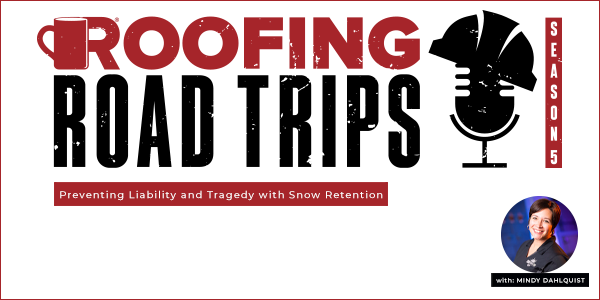
Mindy Dahlquist and Nick Metzer - Preventing Liability and Tragedy with Snow Retention - PODCAST TRANSCRIPTION
Read More ...
Viva la Cultura: Celebrating Hispanic Heritage Month - PODCAST TRANSCRIPTION
Read More ...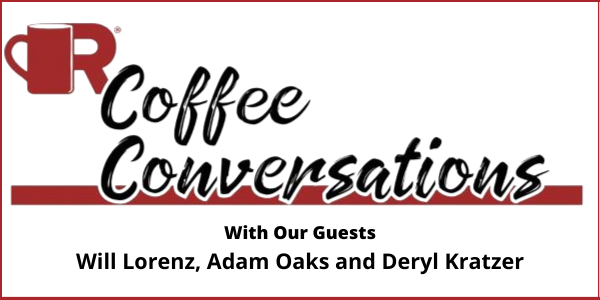
Coffee Conversations - Roofing CEOs’ Industry Outlook - PODCAST TRANSCRIPTION
Read More ...




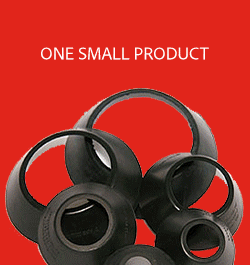







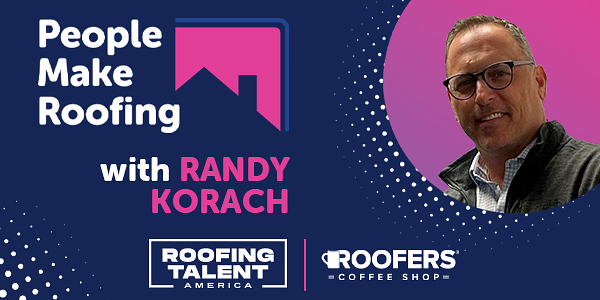


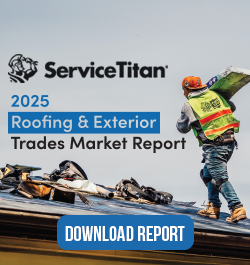
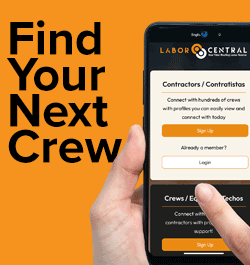


Comments
Leave a Reply
Have an account? Login to leave a comment!
Sign In